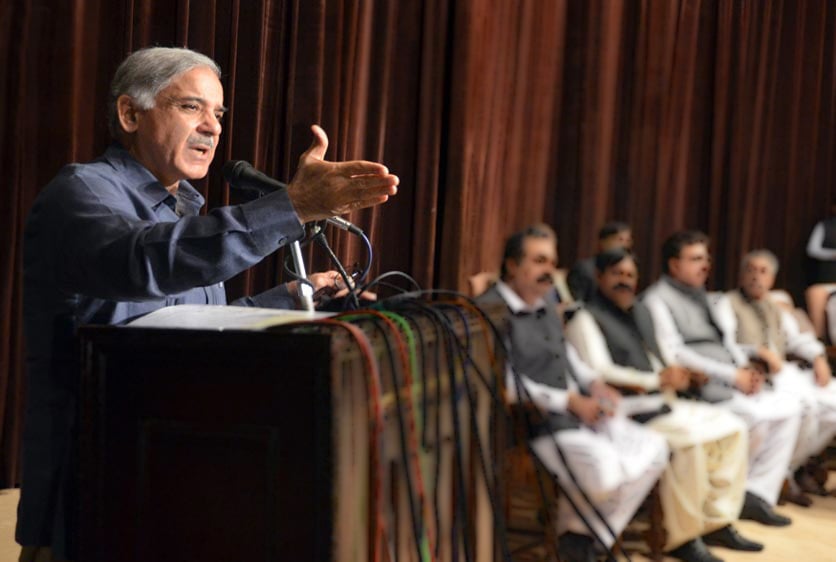1726051900-0/BeFunk_-(30)1726051900-0.jpg)
ISLAMABAD: In what is seen as major diplomatic victory for Pakistan, China, Russia and Iran have confirmed that several terrorist groups including outlawed Tehreek-e-Taliban Pakistan (TTP), Majid Brigade, and Balochistan Liberation Army (BLA) are operating from Afghanistan and posing a threat to the neighbouring country.
A quadrilateral meeting of Pakistan, China, Russia and Iran held in New York on the sidelines of the UN General Assembly session on September 27. While China, Russia and Iran were represented by their respective Foreign Ministers, Defence Minister Khawaja Asif attended the huddle on behalf of Pakistan.
A joint statement issued on Sunday debunked the claims by Afghan Taliban that it was not harboring any terrorist group including the TTP.
Contrary to the interim government's claims, the joint statement expressed serious concerns over the presence of several terrorist groups I'm Afghanistan.
"The Ministers expressed deep concern over the security situation related to terrorism in Afghanistan, noting that terrorist groups such as ISIL, Al-Qaida, the Eastern Turkestan Islamic Movement (ETIM), Tehrik-i-Taliban Pakistan (TTP), Jaish ul-Adl, BalochistanLiberation Army (BLA) and other similar groups in the region including Majeed Brigade, as well as others, based in Afghanistan, continue to pose a serious threat to regional and global security," read the joint statement.
The Ministers condemned the recent terrorist attacks in all shapes and forms in Afghanistan and the region, including the attacks by ISIL-K on Karbala pilgrims on 13 September 2024 and the attacks by TTP in Bannu and Besham in Pakistan on 15 July and 26 March 2024, respectively.
The Ministers expressed deep concern over the terrorism-related security situation in Afghanistan and the region and stressed the concept of common, comprehensive, cooperative, and sustainable security, as well as principles of equal indivisible security, examine regional security issues from a more comprehensive and integrated perspective, and work together to address various security challenges in Afghanistan and the region.
The four countries called on strengthening counter-terrorism cooperation at both bilateral and multilateral levels.
"Afghanistan should be supported in taking comprehensive measures to address both the symptoms and root causes of terrorism and to eradicate terrorism at an early date," according to the statement.
The joint statement acknowledged the efforts of Afghanistan’s de facto authorities to combat ISIL-Khorasan.
They called on de facto authorities to take visible and verifiable actions in fulfilling the international obligations and commitments made by Afghanistan to fight terrorism, dismantle, and eliminate all terrorist groups equally and non-discriminatory and prevent the use of Afghan territory against its neighbors, the region, and beyond.
Meanwhile, all the four countries reiterated their support for Afghanistan's national sovereignty, political independence, unity, and territorial integrity.
They reaffirmed principles of international law, particularly non-interference in its internal affairs, and the right of the Afghan people to independently decide the future of their country in accordance with the principles and purposes of the United Nations Charter.
The Ministers stressed that all members of the international community have a shared interest in a stable and peaceful Afghanistan, a country that should serve as a platform for international cooperation rather than geopolitical competition.
The Ministers emphasized the importance of building an inclusive and broad-based governance system in Afghanistan that reflects the interests and aspirations of all segments of Afghan society.
The Ministers commended the de facto authorities’ efforts to reduce the cultivation of traditional opium. They called for comprehensive measures to combat narcotics, particularly in light of the significant rise in the production of synthetic drugs, including methamphetamine jointly fighting against and dismantling transnational organized criminal groups involved in the trafficking of opiates, and cutting off trade and transit corridors of narcotics within and beyond the region and stressed the importance of the international assistance to promote agricultural development and alternative crops on the way to building a society free of drug abuse.











